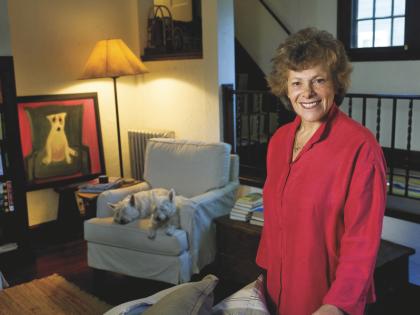For Milwaukee chef and restaurateur Sanford D’Amato, the move to Massachusetts’s Pioneer Valley turned not on the providential bite of an apple, but of a ridiculously juicy peach.
It was in 2007, when he and his wife Angie were visiting friends who suggested a quick stop to pick up peaches in Deerfield. Peaches? D’Amato wondered at the time. “The area is at the same growing level as Wisconsin, and peaches in Wisconsin are good for, you know, throwing at neighbors that you don’t like,” he says, with a smile. “So, we were at this farm stand and I’m thinking, ‘Oh yeah, can’t wait to have a bite of this mealy thing, or whatever it’s going to be.’ But it was one of the best peaches I ever had—and we have gone through the South, through Georgia in July.”
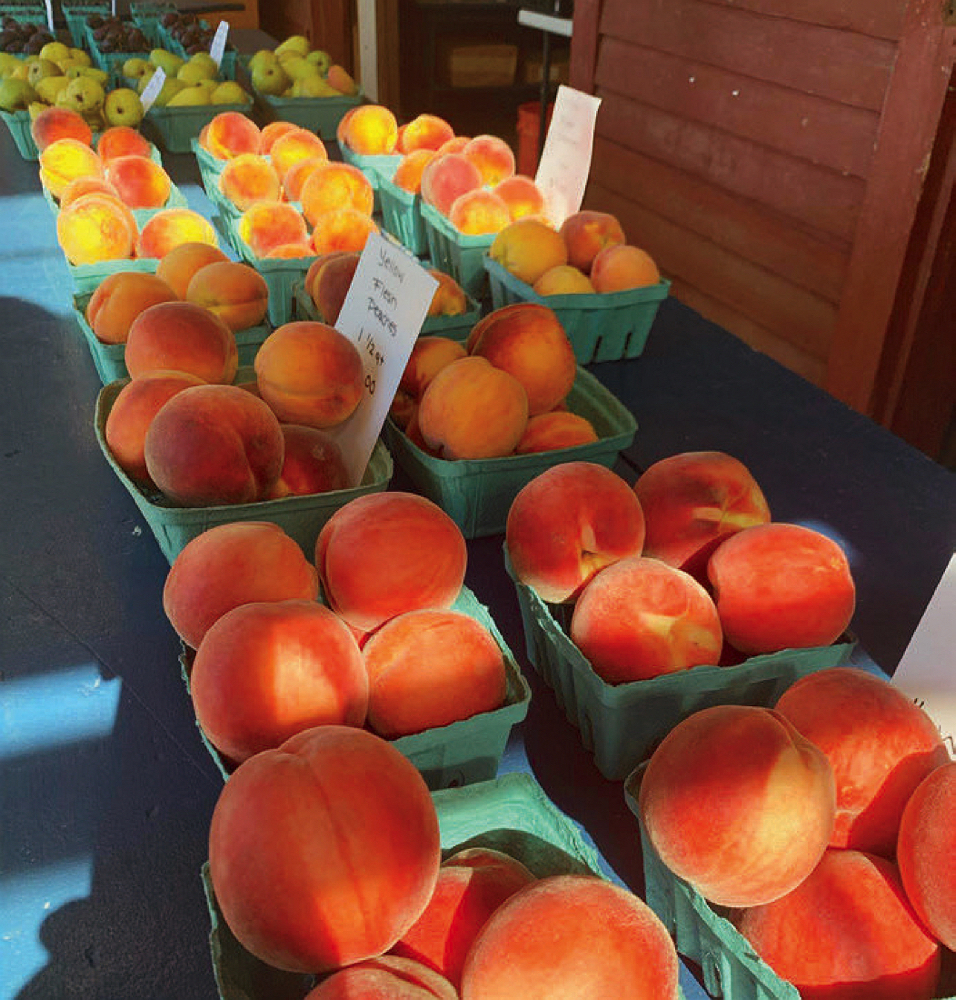
Within a year, the couple bought a bungalow in Hatfield, 14 miles down the road from that stand at Clarkdale Fruit Farms. Their scenic backyard slopes down to the Connecticut River and the house, with a new modern addition, has been home to Good Stock Farm since 2014. There, D’Amato, a James Beard Award-winning chef, teaches cooking classes, and the couple creates small-scale weekend dinner parties based on international cuisines, using local produce as much as possible. Aside from their own clutch of fruit trees and a patch for herbs and vegetables, the business often turns to local food growers and makers—like nearby Black Birch Vineyard. “This area is just a microclimate with some of the best soil in the country,” D’Amato says. “I mean, things just grow here, like peaches, that should not.”
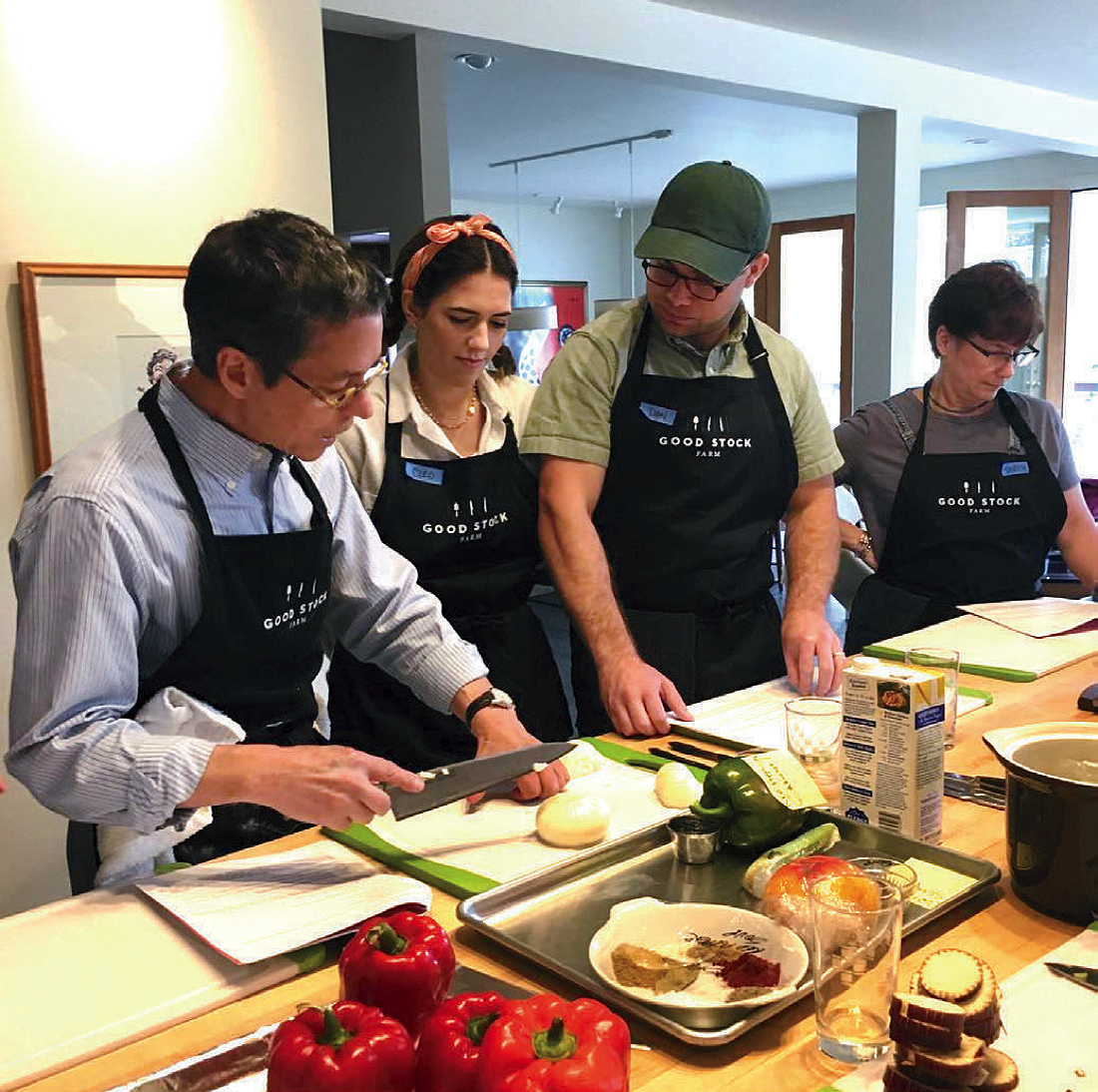
The Pioneer Valley lies along the part of the Connecticut River Valley that snakes through Massachusetts, encompassing Franklin, Hampshire, and Hampden counties, from the northern hill towns and Greenfield to Springfield in the south—in a western part of the state that’s east of the Berkshires. Historically, farming has been the region’s mainstay primarily because of the flat terrain, relatively mild New England climate, and “super-fertile soil,” says Deborah Christakos, owner and guide of Pioneer Valley Food Tours, which offers half-day walking and biking trips to learn about the food scene. Glacial deposits enriched the soil, and farms that line the river also lie in the 100-year floodplain, which helps keep the soil from becoming depleted.
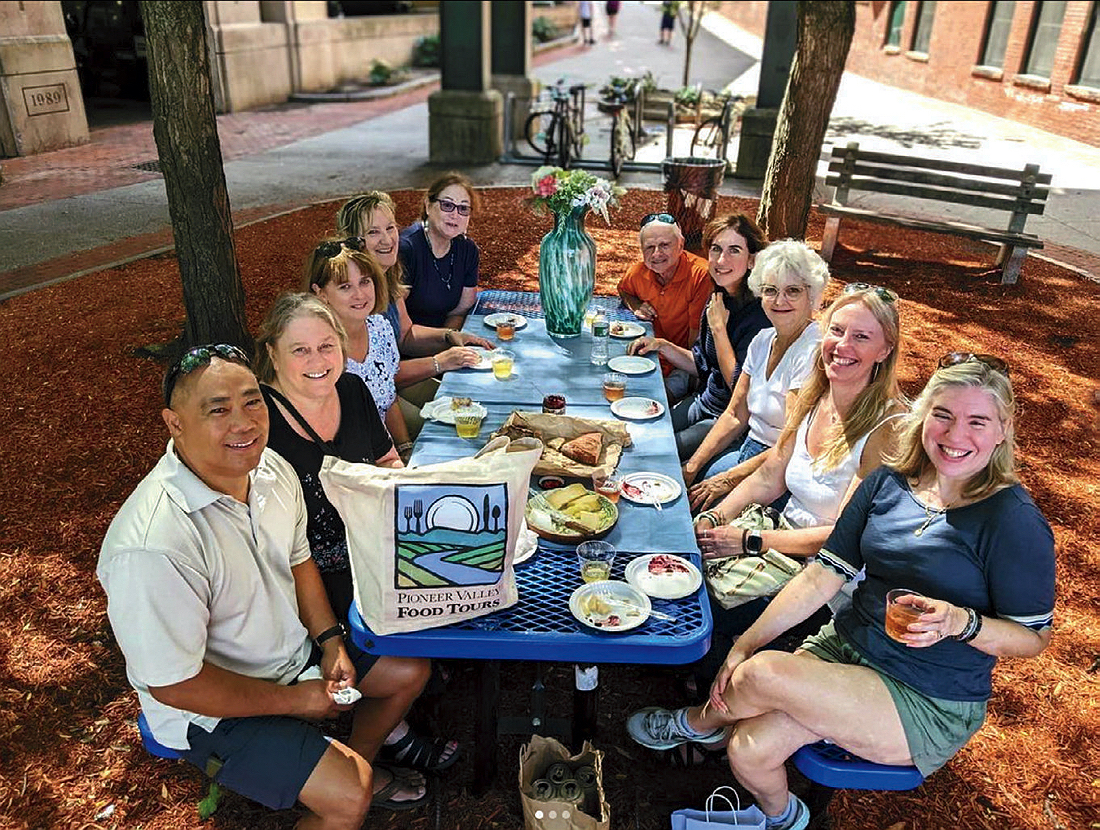
The food growers and makers—and the restaurants and grocers that support their endeavors—are dotted throughout the valley and yet have created a synergistic effect that makes the place a local-food lovers’ paradise. “It’s a mecca for raw ingredients, so it’s a draw for people who appreciate that,” says Christakos, a French-trained chef who worked in restaurants in New York, Boston, and San Francisco before moving to Northampton with her husband and young children 20 years ago. Communal efforts to preserve and strengthen farms during the last three decades have paid off. The three counties hold 1,942 farms, or 27.4 percent of the total number of farms in the state, according to data from the valley’s nonprofit CISA (Community Involved in Sustaining Agriculture), formed in 1993. The average size of the independently owned farms is relatively small, at 80 acres—but a total of 155,405 acres are devoted to farms in those counties, says CISA’s communications manager Claire Morenon. Total annual farm sales, much derived from direct customer transactions, reach $161.7 million. Farm and land preservation are part of CISA’s mission, but other community organizations, like local land trusts, along with public funding, have successfully contributed to the prevailing “buy local” ethic. It supports not only multigenerational operations like Barstow’s Longview Farm, but other relative newcomers, like the mushroom producer Mycoterra Farm in South Deerfield, and Old Friends Farm, in Amherst, where crops include ginger and turmeric (from which they also make syrups and honeys).
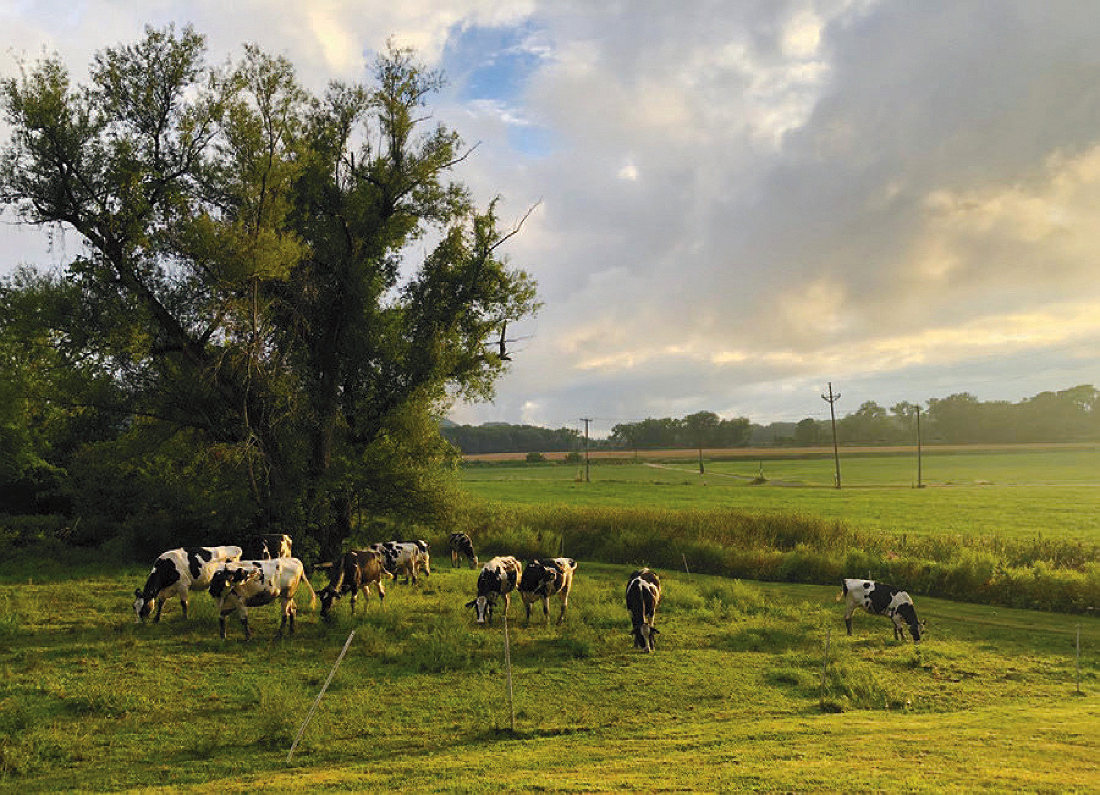
Anywhere visitors travel in the valley this season, they will find farm stands and some 30 farmers’ markets. The Dairy Crawl, North Quabbin Garlic and Arts Festival, and Franklin County’s Cider Days celebrate the bounty. “We live in an amazing place,” says Denise Barstow Manz, manager and part of the seventh generation to lead Barstow’s Longview Farm (a wholesale dairy operation) and Barstow’s Dairy Store and Bakery, in Hadley. “The population is educated about issues and a lot of people have the means to buy local,” she continues. “The community is so engaged and are used to being stuck behind a tractor on the road—or knowing that a field is for growing hay for animals and not for tractor rides.” The farm store is packed with homemade snacks, lunch fare, and seasonal produce: “If there are strawberries ready in Hadley, we’ll have them.” Also sold is fresh milk from nearby McCray’s and Mapleline farms, and ice cream from Maple Valley Creamery.
A traditional crop, apples, has long made Franklin County a hub for hard and soft ciders. West County Cider in Shelburne offers a tasting room and picnic benches with views of rolling hills and open sky. Meanwhile, in Hatfield, Black Birch Vineyard grows grape varietals on about 19 acres, producing and processing 45 percent of the fruit used in its rosés, whites, and reds, with sparkling and sweeter dessert-style options. (The remaining grapes come from New York’s Long Island and Finger Lakes regions.) The vineyard shop opens onto a wraparound patio abutting a stretch of lawn strewn with comfortable chairs and verdant meadow and vineyard views, where people sip wine. “We created a space where people can learn about wine and what it is like to have a vineyard,” says co-owner Michelle Kersbergen, “an educational and warm environment that’s relaxing and fun for anybody from families to mature adults.” The vineyard also hosts outdoor weekend concerts and food trucks, and other summer happenings, like farm-to-table dinners and wine-release parties.
Christakos discusses the wineries and cideries during her Pioneer Valley Food Tours while highlighting food farms and local history amid food samplings at restaurants and markets. The three-hour downtown Northampton walking tour stops for Moroccan and Middle Eastern fare at Mosaic Café and for mousse at Ana Bandeira Chocolates (handmade from cacao grown at the owner’s family’s Brazilian farm). At the Cornucopia Natural Wellness Market, Christakos highlights local products, and while at the gourmet food and wine/beer shop Provisions, she pairs cups of West County Cider with Vermont cheeses atop chewy bread from the Hungry Ghost Bread. The downtown bakery uses a wood-fired oven and sourdough starters for loaves as good as any sold in Paris.
Christakos’s bike tours (in August and October) take visitors into the countryside or along the canals in Turners Falls, with stops at farms, breweries, and artisanal food producers. “I’ve never lived anywhere,” she says, “that you can access local food this easily...right outside the doorstep.”
That’s the goal at the fourth-generation venture Clarkdale Fruit Farms in Deerfield, where Sanford D’Amato first bit into a Pioneer Valley peach. With 45 acres of orchards, Clarkdale produces peaches, apples, pears, plums, grapes, and cherries, selling 95 percent of them at its own farm store. Fruit is picked, sold, and eaten virtually off the tree, says Ben Clark, who runs the place with his father, Tom. “We have a loyal customer base and that’s why we’re able to be retail. But we can’t compete with apples that come from Washington state or Chile.”
Park Hill Orchard in Easthampton opens in July. With 96 fruits and 49 apple varieties, “We’re a bit of a tasting garden,” says co-owner Russell Braen. Crowds are also drawn to the delightful self-guided sculpture tour called Art in the Orchard.
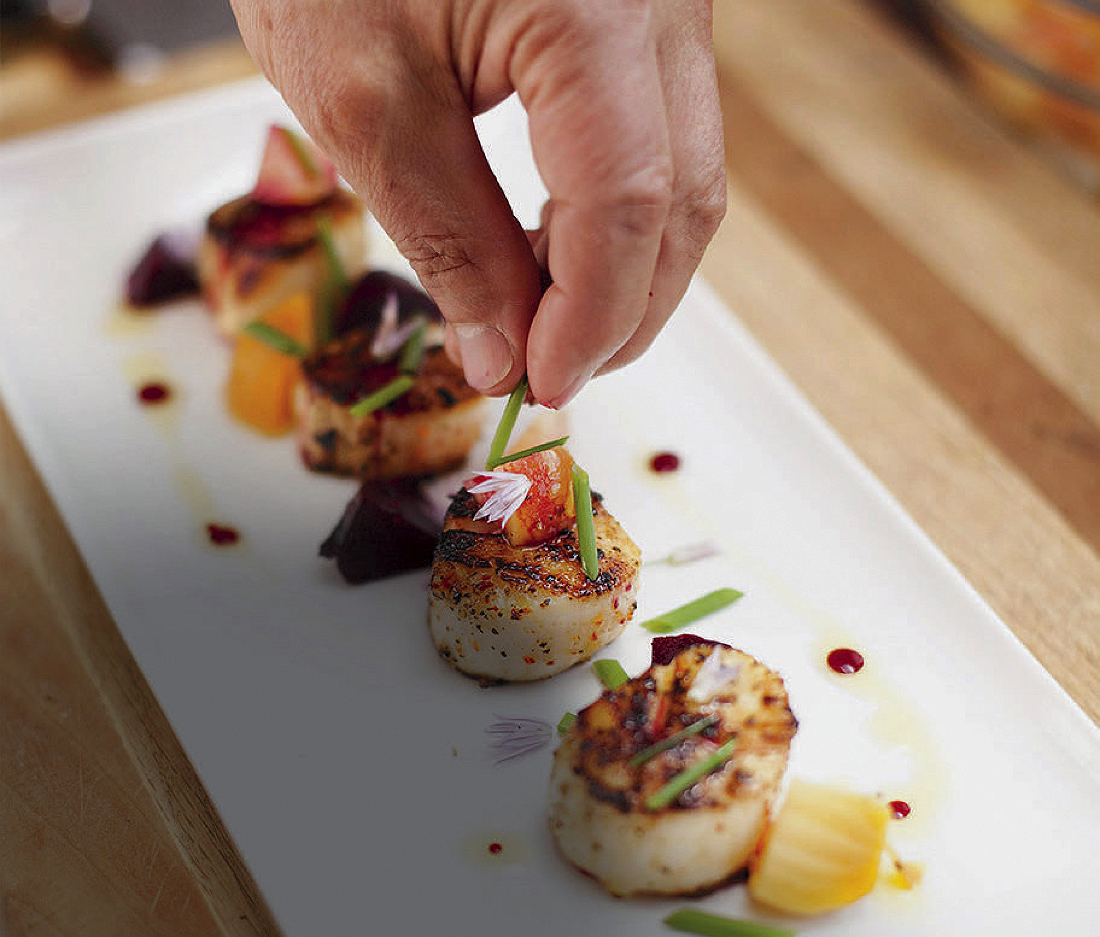
Good Stock Farm, too, has been quite successful. Classes capped at nine people mix hands-on technique with food history—and produce a meal that all enjoy. The themed dinners, through December, seat 13 and often feature summer produce—which sprouts up at every turn. D’Amato tells of first starting out in the valley and going to buy a tiller to plant a few fruit trees behind the house. The salesman asked if he wanted any gardening advice. Sure, answered D’Amato. Learning the farm was located on Main Street in Hatfield, he said, “Put it in the ground.” “Well,” D’Amato asked after a pause, “and then what?” The man looked at him and smiled. “Don’t you know what soil you have there? Just stick anything in that ground—and it’ll grow.”




